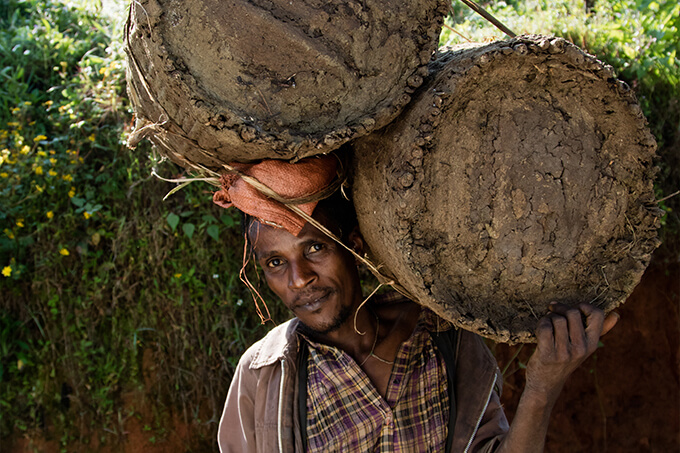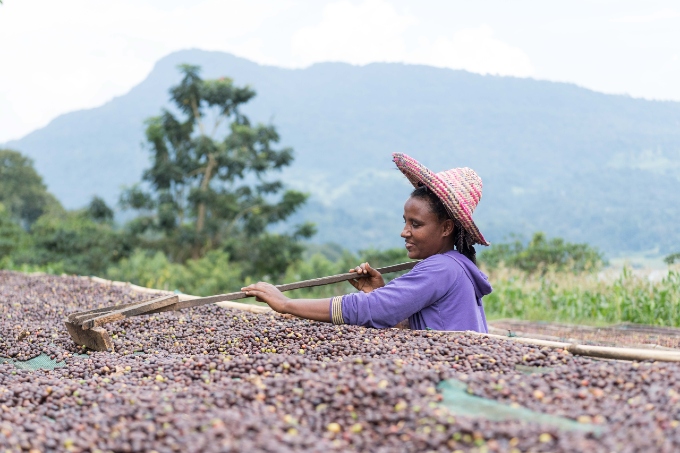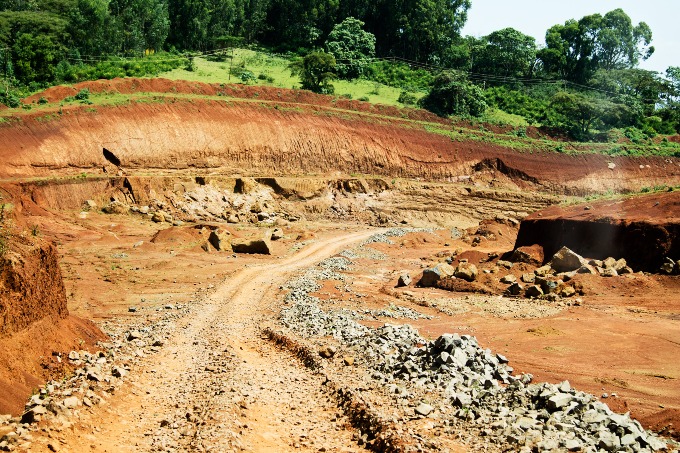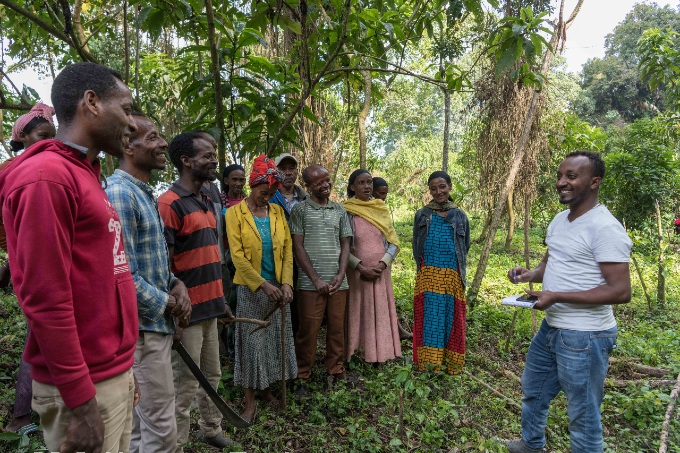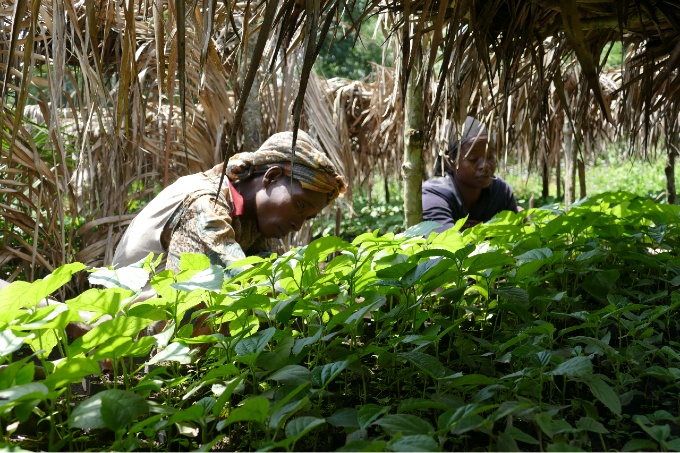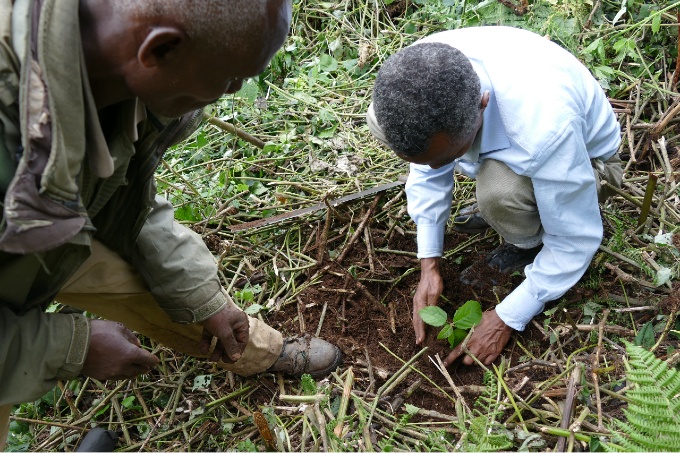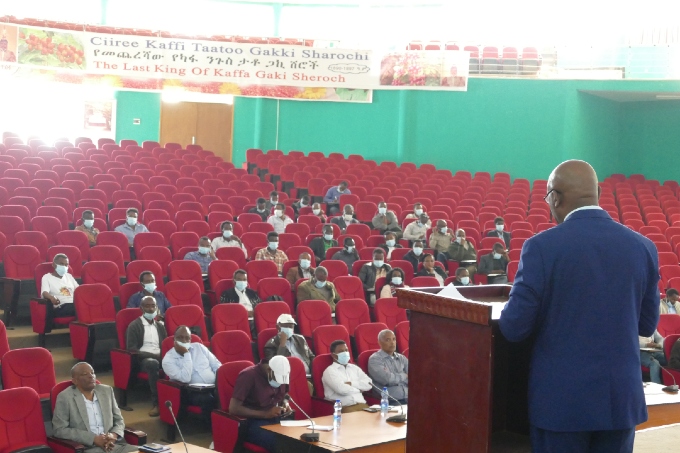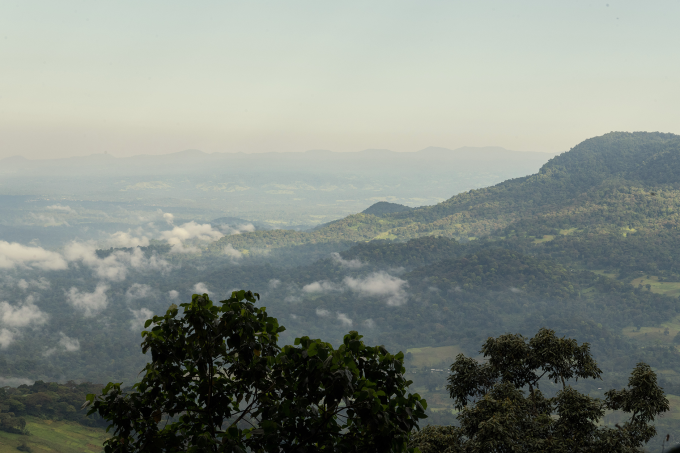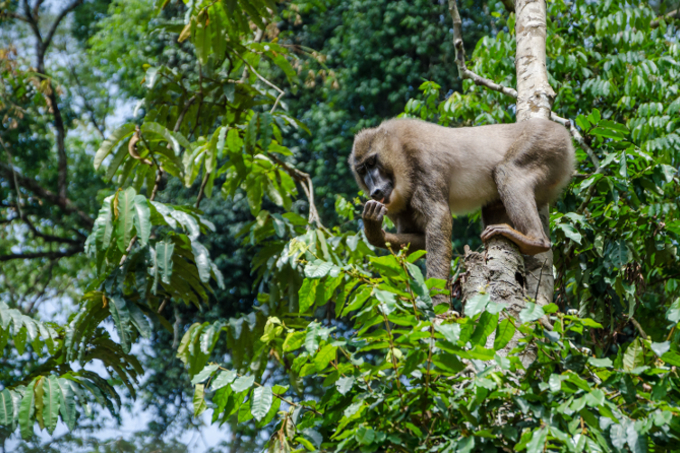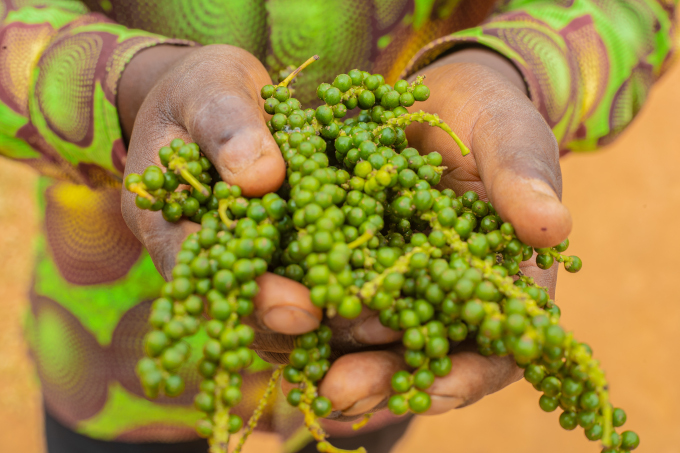Forests for Future
Developing forest landscapes for livelihoods and climate adaptation in Southwest Ethiopia
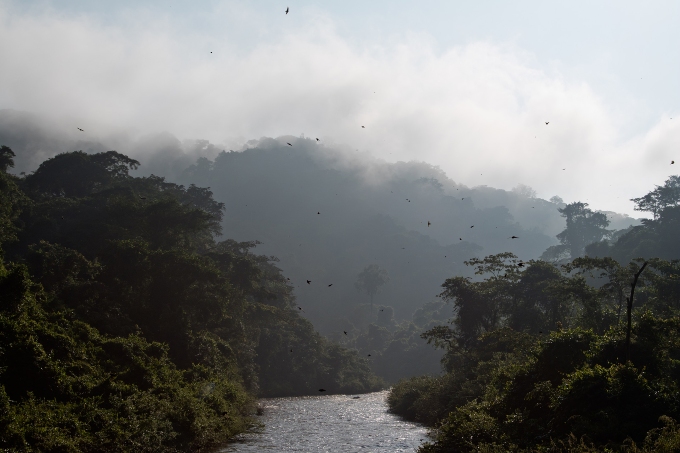
Southwest Ethiopia holds some of the last remaining Afromontane cloud and rain forests of Ethiopia - photo: Mathias Putze
The last highland forests of Southwest Ethiopia are particularly valuable key ecosystems: with their extremely diverse terrain, ranging from plateaus at over 2,000 metres to lowland plains at only 400 metres in altitude, they play an essential role as water reservoirs and provide habitats for many specialised animal and plant species. These include, for example, the mantled guereza (Colobus guereza), rüppell's vulture (Gyps rueppelli), ethiopian highlander (Atoconeura aethiopica) as well as other species, some of which are only found there. With a high volume of rainfall and rich soils, the diverse forest landscapes are among the country’s most abundant in food.
In Ethiopia, forest degradation and reduction is a serious obstacle to the eradication of poverty and hunger and the preservation of biodiversity. Likewise, forests in the Southwest also have been degraded and reduced in their original size and connectivity. This led to isolated forest patches preventing gene flow and reducing ecosystem services and the general gene pool of the forest’s flora and fauna. This in turn increases the vulnerability of forests and a two million population of forest-dependent communities. Consequently, forests urgently need to be stabilised, community-based restoration has to be initiated and income schemes for the local communities should be developed.
NABU has therefore set up a project in partnership with NABU Ethiopia and Ethio Wetlands and Natural Resources Association (EWNRA), supported by the German Federal Ministry for Economic Cooperation and Development (BMZ).
-
The local communities live in dependency of the ecosystem services of the last natural forests - photo: Mathias Putze
-
Coffee collected from forests, gardens and plantations is the main source of income for local people - photo: Maheder Haileselassie
-
Deforestation threatens biodiversity and the livelihoods of the local communities - photo: Maheder Haileselassie
-
Erosion caused by deforestation is affecting natural ecosystems and agricultural lands - photo: Mathias Putze
-
The project intends to increase the communities’ capacities on sustainable forest management and conservation - photo: Maheder Haileselassie
-
Strengthening and enriching forests through tree seedling production - photo: Abdurazak Sahile
-
Planting seedlings with communities at restoration sites - photo: Abdurazak Sahile
-
The project launched the Southwest Forest Alliance for knowledge sharing, exchange and joint forest conservation efforts - photo: Abdurazak Sahile
Project facts
Project title
Forests for Future - Developing forest landscapes for livelihoods and climate adaptation in Southwest Ethiopia
Country/Region
Southwest Ethiopia
Period
January 2020 to October 2023
Partners
see dropdown menu below
Sponsored by / Supported by
The project is supported by the German Federal Ministry for Economic Cooperation and Development (BMZ)
With this project we are contributing to the following SDGs
SDG 2, SDG 12, SDG 13, SDG 15, SDG 17
More details
Project goal & approach
Our goal: We aim to build up the capacities of community representatives, local NGOs, key government officials and to establish structures for community-based restoration, conservation and income generation in order to preserve the forest landscapes of Bench-Sheko, Kafa and Sheka as carbon sinks and long-term ecosystem service suppliers.
The planned activities include
- Networking and joint capacity building at regional level by installing the Southwest Forest Alliance Platform for stakeholders of the forest sector working in Southwest Ethiopia
- Participatory forest assessment and capacity building
- Capacity support program on forest degradation and conservation at local level
- Participatory development and implementation of community-based Forest Action Plans (FAPs) as easy-applicable tool
- Income generation program for forest user groups and Participatory Forest Management (PFM) groups
- Project communication campaign for awareness of the pressing issue of forest degradation and loss of livelihoods for millions of people, as well as of the project and its tools and results for application in other regions
- Set up NABU Ethiopia as a strong local NGO in the environmental sector of Ethiopia
About 2 million people, mainly small-scale farmers, living in the target areas will indirectly benefit from the project. Specifically, forest user groups, Participatory Forest Management groups, community members, governmental representatives as well as local NGOs/CBOs will be part of the project.
Our project sites
The project is working with Bench-Sheko Zone, Kafa Biosphere Reserve and Sheka Forest Biosphere Reserve, all situated in Southwestern Ethiopia in the South West Ethiopia Peoples‘ Region (SWEPR).
Bench-Sheko Zone is the region with the greatest lowland share and has suffered severe forest decline. Between 1986 and 2001, forest cover decreased from around 20% to only 12% (2,881 km²), especially in the regions where refugees from the arid regions of Ethiopia were settled. Studies prove the population's dependence on forest resources: income from forest resources is the most important source of livelihood for the population, alongside agriculture.
Kafa Zone or Kafa Biosphere Reserve is characterised by species endemism in Afromontane mountain cloud, rain and bamboo forests and is a supra-regionally important water supplier. The forests and wetlands are under pressure from the effects of climate change and from coffee/tea investors and are already highly fragmented. Unemployment and lack of prospects lead to frustration, political uprisings and the search for income, especially among young people, e.g. through illegal logging. Through NABU’s work since 2009, parts of the forests are well recorded and are regularly surveyed by rangers.
Sheka Zone or Sheka Forest Biosphere Reserve comprises unique natural landscapes of about 240,000 ha, ranging from cool, humid highlands to hot lowlands. The characteristic Afromontane rainforest contains Coffea arabica in the undergrowth. In the past, large areas of forest were converted into industrial tea production. Nevertheless, both the local government and the local population are keen to preserve the forests, which are strongly linked to spiritual beliefs and traditions and provide an important basis for life.
Partners and actors
The project will be managed by NABU Ethiopia in cooperation with EWNRA. The following regional SWEPR institutions are partnering the project:
- Bureau of Finance and Economy Development (BoFED)
- Bureau of Agriculture (BoA)
- Bureau of Women, Children and Youths (BoWCY)
- Bureau of Forest, Environmental Protection and Climate Change (BoFEPCC)
The project is financially supported by the German Federal Ministry of Economic Cooperation and Development (BMZ).
Follow-up project
Fragmentation and degradation are threatening Ethiopia's diverse forest landscapes and thus the country's biodiversity and food security. In Southwest Ethiopia, NABU and its partners are therefore implementing action plans to restore the precious forests. more →
MORE
Iko Esai in Nigeria, Africa, is home to precious tropical rainforest and extraordinary biodiversity, including gorillas, chimpanzees and forest elephants. In collaboration with local communities and partners, NABU protects the forest and secures livelihoods. more →
NABU and six African NGOs are setting up regional cluster networks for enhancing organisational development of green NGOs in Africa and supporting local farmers in adapting agricultural systems to climate change. more →



